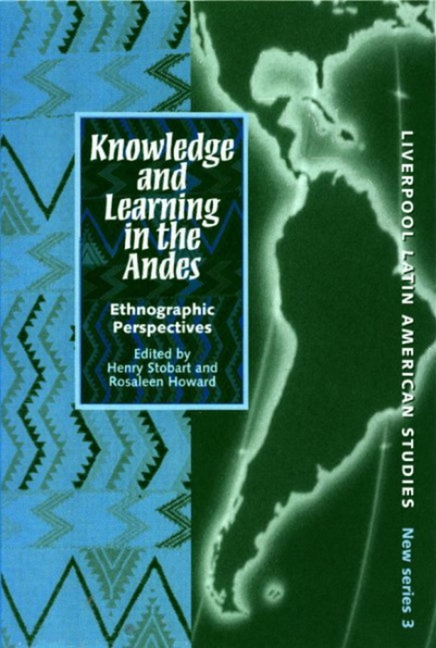Book contents
- Frontmatter
- Contents
- List of illustrations
- List of contributors
- Introduction
- Part I: Multiple Media in the Creation and Transmission of Knowledge
- 1 Yachay: The Tragedia del fin de Atahuallpa as Evidence of the Colonisation of Knowledge in the Andes
- 2 Transmission of Knowledge through Textiles: Weaving and Learning How to Live
- 3 Coloured Knowledges: Colour Perception and the Dissemination of Knowledge in Isluga, Northern Chile
- 4 Interlocking Realms: Knowing Music and Musical Knowing in the Bolivian Andes
- Part II: Knowledge, Power and Authority
- Part III: Conflicting Paradigms of Knowledge
- Index
1 - Yachay: The Tragedia del fin de Atahuallpa as Evidence of the Colonisation of Knowledge in the Andes
from Part I: Multiple Media in the Creation and Transmission of Knowledge
- Frontmatter
- Contents
- List of illustrations
- List of contributors
- Introduction
- Part I: Multiple Media in the Creation and Transmission of Knowledge
- 1 Yachay: The Tragedia del fin de Atahuallpa as Evidence of the Colonisation of Knowledge in the Andes
- 2 Transmission of Knowledge through Textiles: Weaving and Learning How to Live
- 3 Coloured Knowledges: Colour Perception and the Dissemination of Knowledge in Isluga, Northern Chile
- 4 Interlocking Realms: Knowing Music and Musical Knowing in the Bolivian Andes
- Part II: Knowledge, Power and Authority
- Part III: Conflicting Paradigms of Knowledge
- Index
Summary
The communicative divide between Spanish invaders and Inka holders of power, described by numerous eyewitnesses to the scene at Cajamarca in November 1532, acquired a particular symbolic potency in Andean cultural memory as post-Conquest history unfolded. Over the intervening centuries, the new social classes emerging under colonial and republican regimes have repositioned themselves with regard to the event, evoking the Spanish Conquest of the Inkas in popular culture from diverse political, spatial and temporal standpoints, right down to the present day. One of the best-known examples of such cultural expression is the popular drama generically known as the Tragedia del fin de Atahuallpa (‘Tragedy of the End of Atahuallpa’; hereafter Tragedia), most easily accessible in published form in Jesús Lara's edition (Lara 1989). In this chapter I shall use Lara's text as a focal point around which to explore the way ideas about seeking, acquiring and processing knowledge are expressed in the Quechua language. On the one hand, the play depicts the Spanish Conquest of the Inkas in the idiom of communication breakdown. On the other hand, it raises issues about the ways in which knowledge of history – in particular the Conquest of Peru – is produced in cultural tradition. Accounts of that history vary according to the social, temporal and spatial perspectives of the storytellers, and Lara's text offers a particularly ambiguous view. In spite of, or perhaps because of, its enigmatic origins, and the questions it raises about cultural ‘ownership’, Lara's version of the Tragedia lends itself to analysis from the point of view of what I shall call the ‘colonisation of knowledge’ in the Andes.
In the course of this analysis, such questions arise as: whose history is this? whose language is this variety of Quechua? and whose knowledge is it expressing? Accordingly, the ways in which Lara's play expresses ideas about knowledge in the Quechua language are not straightforward, or unitary in meaning, but have to be analysed critically.
The social contexts of production of knowledge that I have in mind in approaching my subject are rural and urban provincial areas of Peru and Bolivia where speakers of Quechua and Spanish have for many centuries interacted and merged, in social, economic, and political arrangements generated by colonialism.
- Type
- Chapter
- Information
- Knowledge and Learning in the AndesEthnographic Perspectives, pp. 17 - 39Publisher: Liverpool University PressPrint publication year: 2002



